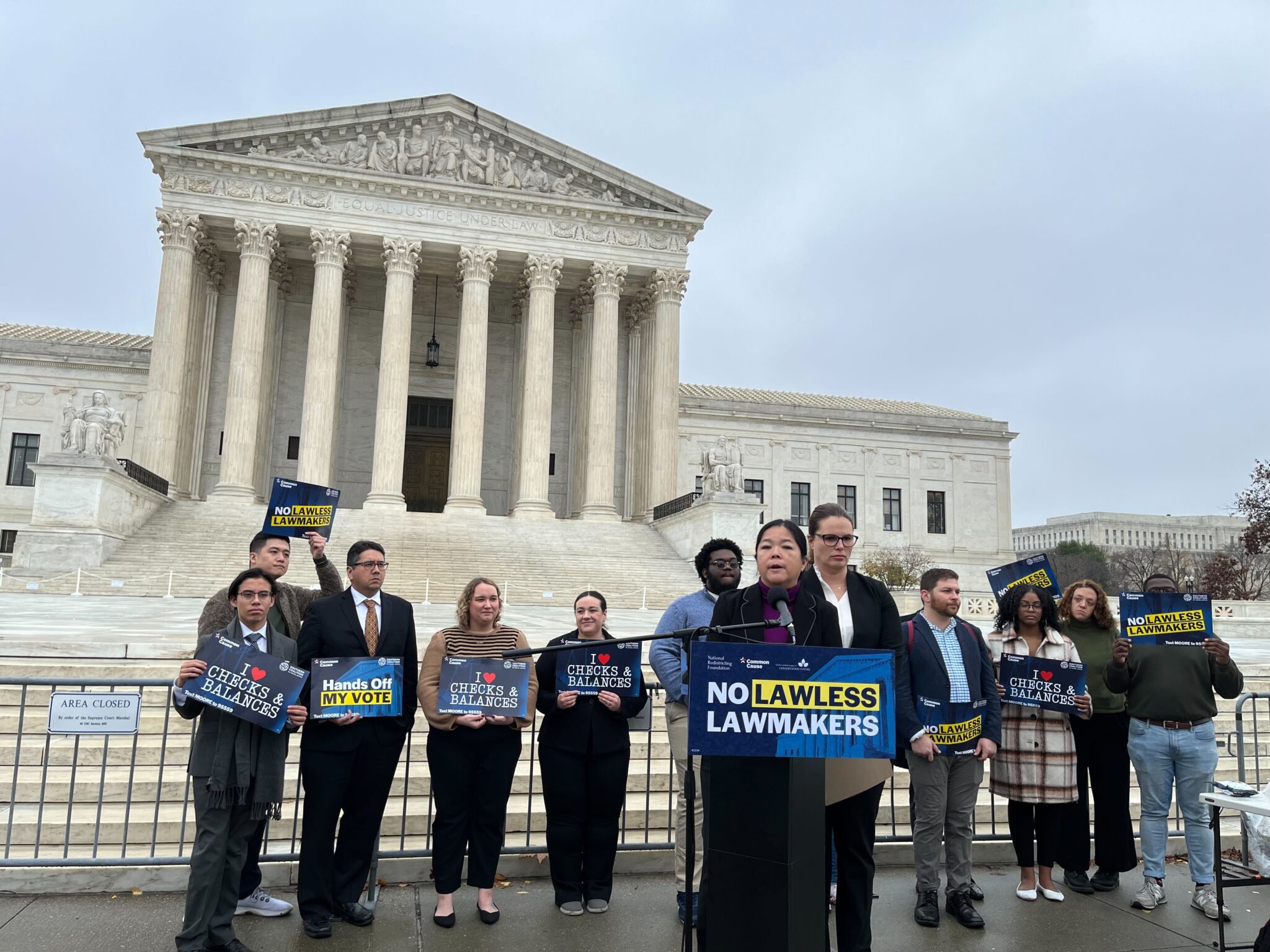Press Release
Report: Citizen-Led Redistricting Increases Voter Choices while Gerrymandering Leaves 33 Million with Only One Candidate on the Ballot
Voters have more major party choices in congressional and state legislative races this year where citizen redistricting commissions drew districts following the 2010 census compared to states where legislators drew boundaries, according to a new report Common Cause released today. Restoring Voter Choice: How Citizen-Led Redistricting Can End the Manipulation of our Elections also finds that politicians of both parties drew congressional districts for 33 million people that will give voters no choice for their U.S. House race on November 8.
“Giving voters choices at the ballot box is a fundamental requirement for democracy,” said Karen Hobert Flynn, president of Common Cause. “However, legislators across America manipulated districts so effectively after the 2010 census that millions of voters will see just one name on the ballot in congressional and state legislative races this year. Fortunately, we now know that citizen redistricting commissions, which keep mapmaking power out of the hands of self-interested legislators, produce far more districts in which candidates have opponents and must make their case to the voters.”
“The public deserves fair and transparent redistricting that prioritizes the needs of our communities instead of letting elected officials play political games behind closed doors,” said Kathay Feng, Common Cause national redistricting director. “It’s time to stop the foxes from guarding the henhouse and give citizens a true voice in their own representation. A lack of choices at the ballot box is just one more piece of evidence demonstrating that we must end the inherent conflict of interest in which politicians draw their own districts and congressional maps.”
The report identifies districts in which one or more candidates from only one party filed to run, depriving voters of choices in the general election, and those in which only one person from a major party filed to run, effectively ending the campaign before the primary. Legislators are almost four times more likely than citizen redistricting commissions to produce congressional districts that deny voters choices in primaries and more than twice as likely to produce districts that deny voters choices in the general election. Legislators also produced a significantly higher percentage of state legislative districts that denied voters choices in primaries and general elections.
The report also identifies states with the highest percentages of congressional and state legislative districts in which only one party or one person filed to run. We award the “People’s No Choice Awards” to Arkansas, Georgia, and Massachusetts for having the highest percentage of congressional races, state legislative general elections, and state legislative primaries, respectively, that deny voters choices.
